How long should you be brushing your teeth? Dentists reveal the top mistakes you could be making with your routine
Wondering how long you should really be brushing your teeth for? Longer isn't always better. Here dentists reveal the truth and the other top brushing mistakes you could be making
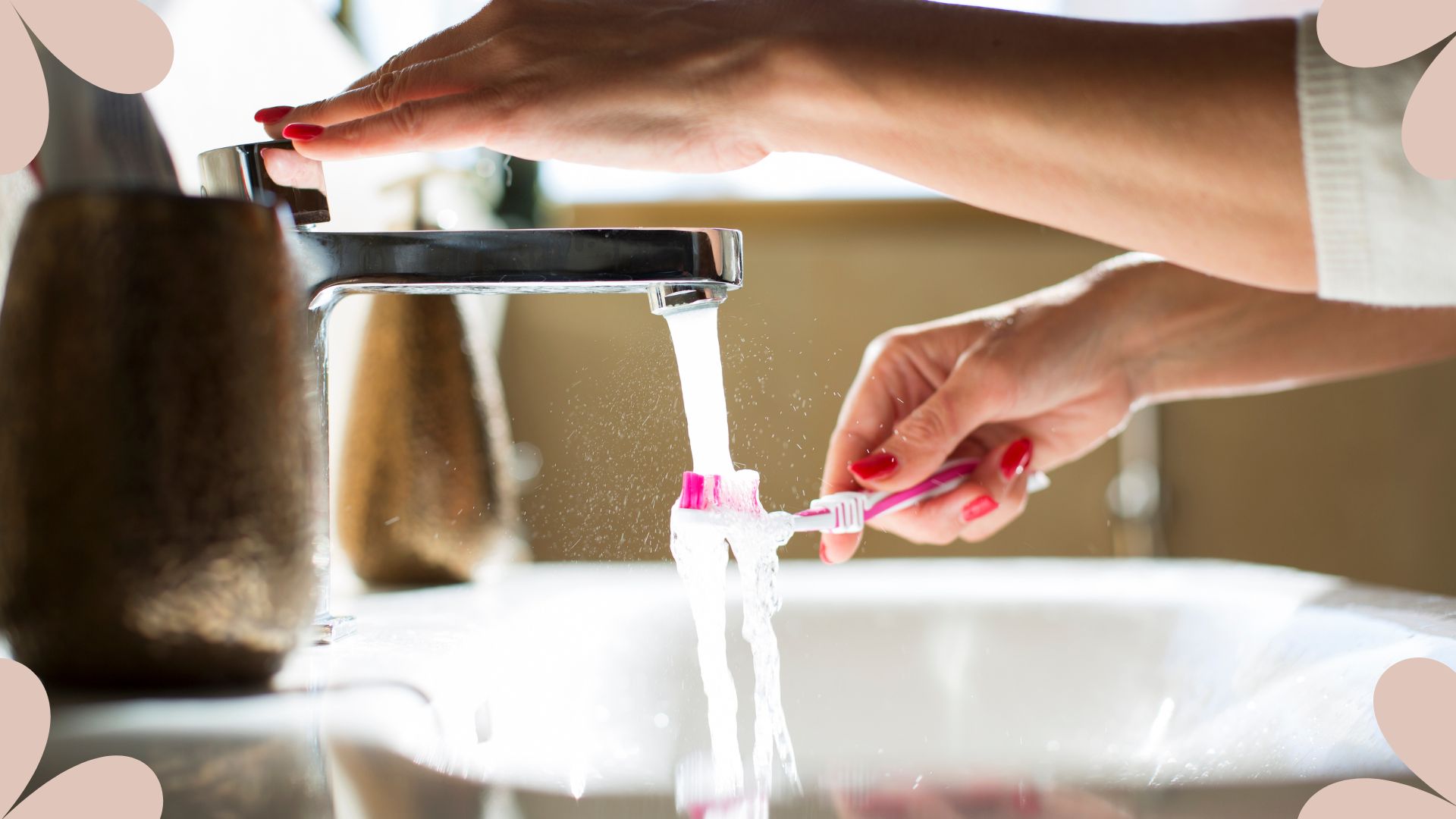

How long should you be brushing your teeth? Is baking soda bad for you? Should you actually rinse after brushing? For something we do every day, it's surprising there are still so many common mistakes to be made when brushing our teeth.
From damaging the enamel to wearing away your gums, some seemingly beneficial brushing tips out there can actually do more harm than good. Even if you just brush twice a day, and use mouthwash and floss, without delving into the worlds of whitening or correction, you may still be making some of these mistakes without realising.
With that in mind, we spoke to the experts to find out what the most common teeth-brushing mistakes are and more importantly, how we can best avoid them. Whether you're wondering if you should choose one of the best electric toothbrushes over a manual brush or looking for ways to whiten your teeth naturally, we have you covered.
How long should you be brushing your teeth?
Multi-award-winning dentist, Dr Safa Al-Naher, explains that there is a perfect balance when it comes to the amount of time we should spend brushing. She says, “There is such a thing as brushing your teeth for too long. Two minutes is the ideal, and it's split into 30 seconds per quarter of the mouth. And that's with an electric or a manual toothbrush.”
For most of us, brushing our teeth comes about at the two times of the day that we’re most sleepy and checked out. So keeping an eye on the amount of time we’re brushing may not cross our mind, although maybe it should.
There is quite a lot of damage to be done with over-brushing, Dr Safa warns. Not enamel wear but also gum wear. “You can start to cause deficiencies in the teeth themselves which can lead to a lot of sensitivity and weakening of the tooth structure, so two minutes is fine,” she says.

Dr Safa Al-Naher is the director and principal dentist at Serene Dental and Facial Aesthetics. She is an Advanced Facial Aesthetics Trainer and has completed her Diploma in Invisalign Teeth Straightening.
Top teeth brushing mistakes to avoid
1. Brushing your teeth with baking soda
This is perhaps one of the most popular tooth-whitening hacks and may even be one you use on occasion too. Baking soda is mildly abrasive so it helps with lifting stains. This is why it's a very popular household cleaning agent after all. However, when it comes to our teeth, using the ingredient can potentially cause more damage than it’s worth.
Sign up to our free daily email for the latest royal and entertainment news, interesting opinion, expert advice on styling and beauty trends, and no-nonsense guides to the health and wellness questions you want answered.
Dr Safa, who is also the founder of Serene Dental, warns of the unwanted effects that can come with the overuse of baking soda in our dental regimes. She says, “As with anything abrasive, you have to be careful. Just like you wouldn't use a very abrasive face scrub too often because you could cause a lot of damage to your skin, [you should avoid using abrasive substances around the teeth].”
It does have some benefits for the mouth in general though as it reduces acidity. Having a mouth with an acidic pH level can be a leading cause of tooth decay and bad breath, so the "fact that it brings up the pH in the mouth is quite good," says the dentist.
"But again, it's not a replacement for toothpaste. Toothpaste contains fluoride and it's the fluoride really that has many more proven benefits to teeth in terms of tooth decay and reversing tooth decay."
If you’re looking to whiten your teeth naturally and want to try baking soda, then Dr Safa recommends only doing it occasionally and alongside your daily use of fluoride toothpaste.
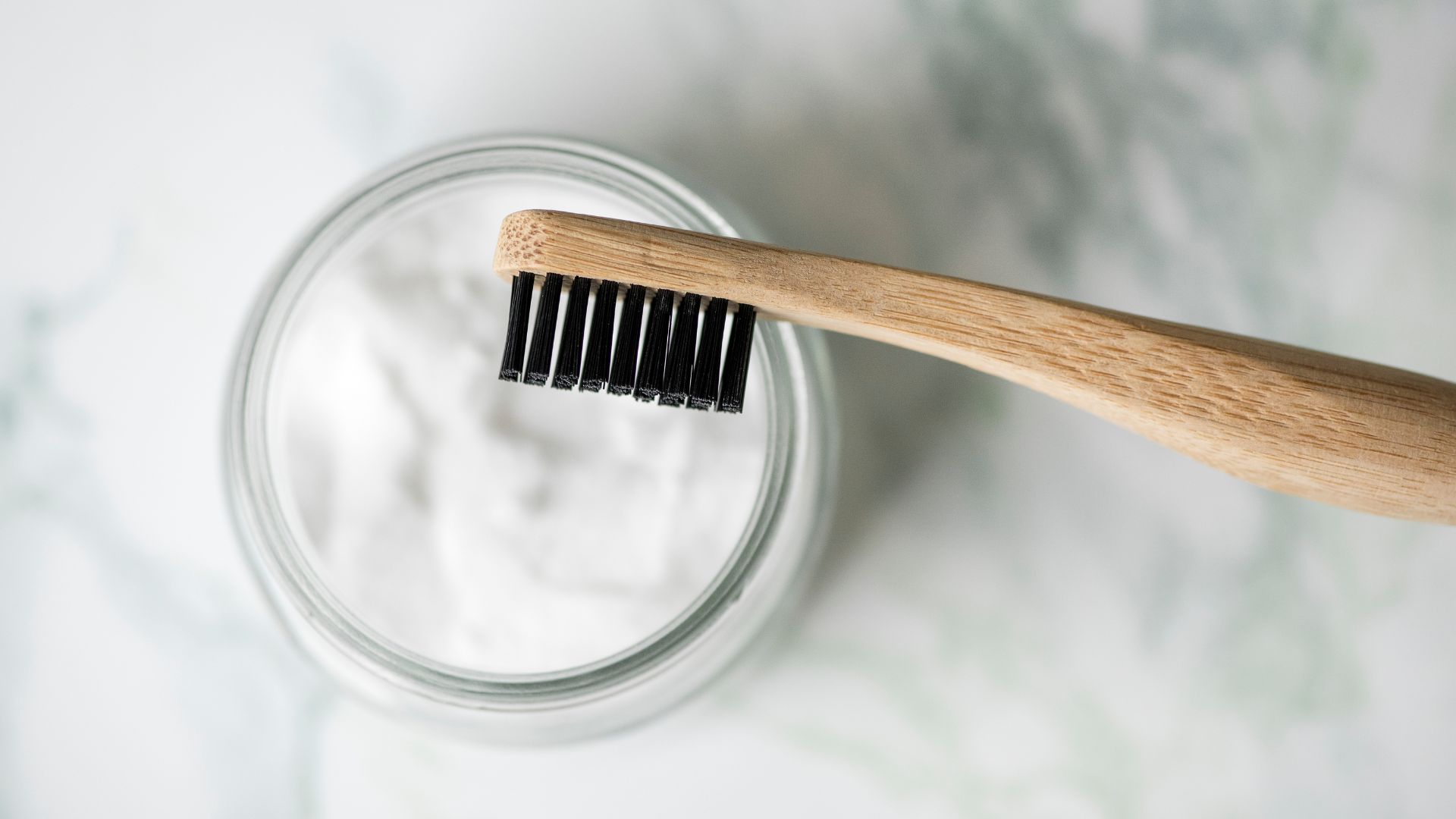
2. Rinsing after you brush
This may come as a shock as rinsing your mouth after brushing is a habit for most. However, it turns out rinsing is actually counterproductive and it washes out all of the helpful ingredients provided by our toothpaste.
“The advice is spit, don’t rinse,” says Dr Safa. If you rinse your mouth after brushing this will clear out all of the fluoride which helps strengthen your enamel, reverses tooth decay, and aids teeth whitening. This is also why it’s a great idea to buy the best toothpaste you can find as those beneficial ingredients can work hard even after you’ve finished brushing.
3. Only brushing once a day
You may be thinking you know how often to brush your teeth, however, research suggests that many of us don't. A survey by the Oral Health Foundation, for instance, found recently that one in four people in the UK only brush their teeth once a day. And sure, missing a second brushing session occasionally won't cause your teeth any damage but it's best to avoid it on the daily.
Speaking to Dr Raj Juneja, the principal dentist at Face Teeth Smile Dental Clinic, he is quick to stress the importance of two brushes a day. He says, “Brushing only once a day can lead to plaque buildup, increased risk of cavities, and gum disease. It's crucial to establish a consistent brushing routine in the morning and before bedtime to ensure your teeth and gums stay healthy.”
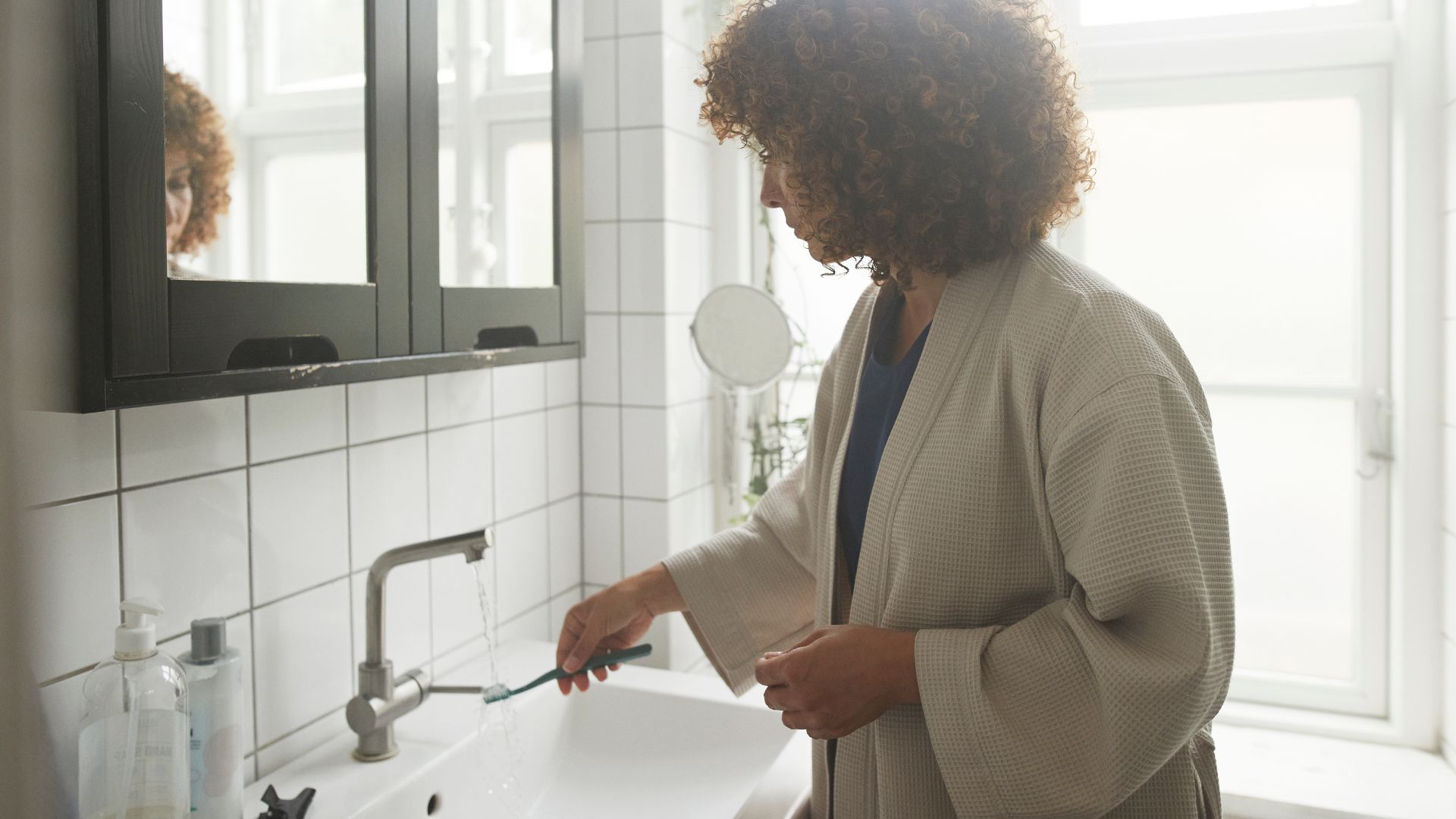
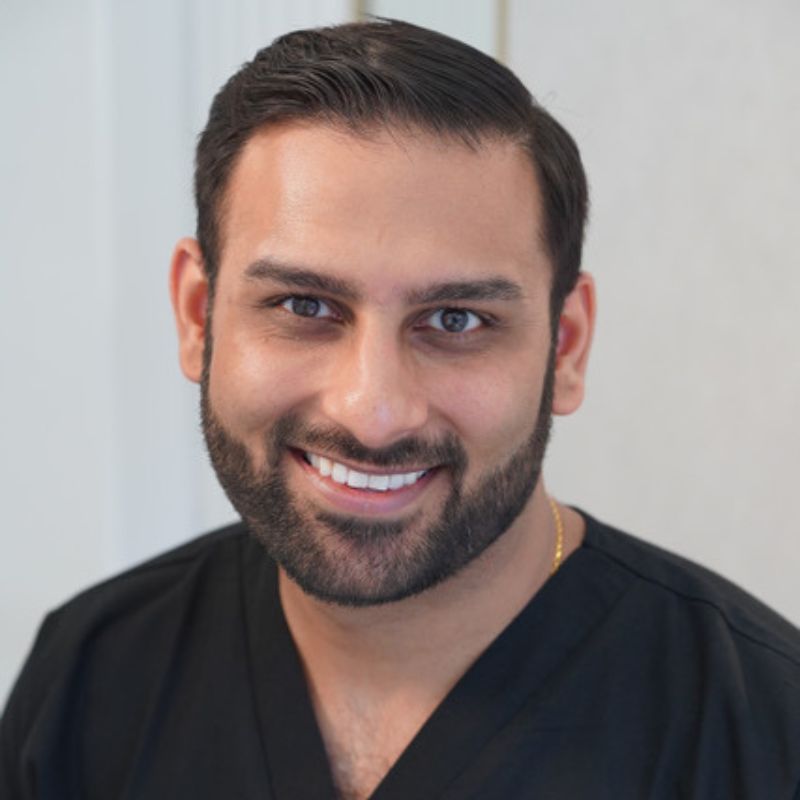
Dr Raj Juneja has a bachelor's degree in Dental Surgery with Clinical Distinction. He went on to complete postgraduate training in Orthodontics, Restorative and Aesthetic Dentistry.
4. Brushing your teeth too hard
Along with all the other brushing conditions to take into consideration, it’s also important to be careful with the amount of pressure you use too. When brushing for the recommended two minutes, a heavy hand can do quite a bit of damage to our teeth’s enamel.
“A lot of people make the mistake of thinking that the harder they brush their teeth the cleaner they’ll get,” explains leading cosmetic dentist Dr Sam Jethwa. “However, applying too much pressure to the toothbrush when brushing can damage the tooth enamel and also cause the gums to recede.”
To avoid this, Dr Jethwa, who is also the founder of Bespoke Smile, recommends investing in a good quality electric toothbrush which will alert you when too much pressure is being applied. We have rounded up the best Oral-B electric toothbrushes for a bright and healthy smile so you don’t have to.
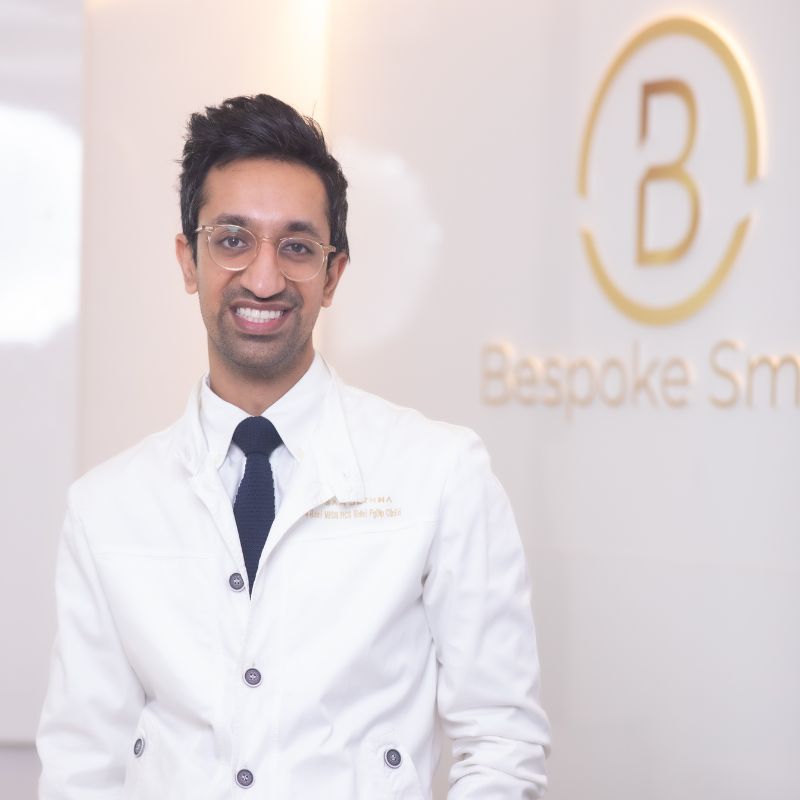
Being a Vice President at The British Academy of Cosmetic Dentistry, Dr Jethwa is well known within the UK Dentistry industry. He specialises in smile makeovers, ultra-thin porcelain veneers and overall restorative work.
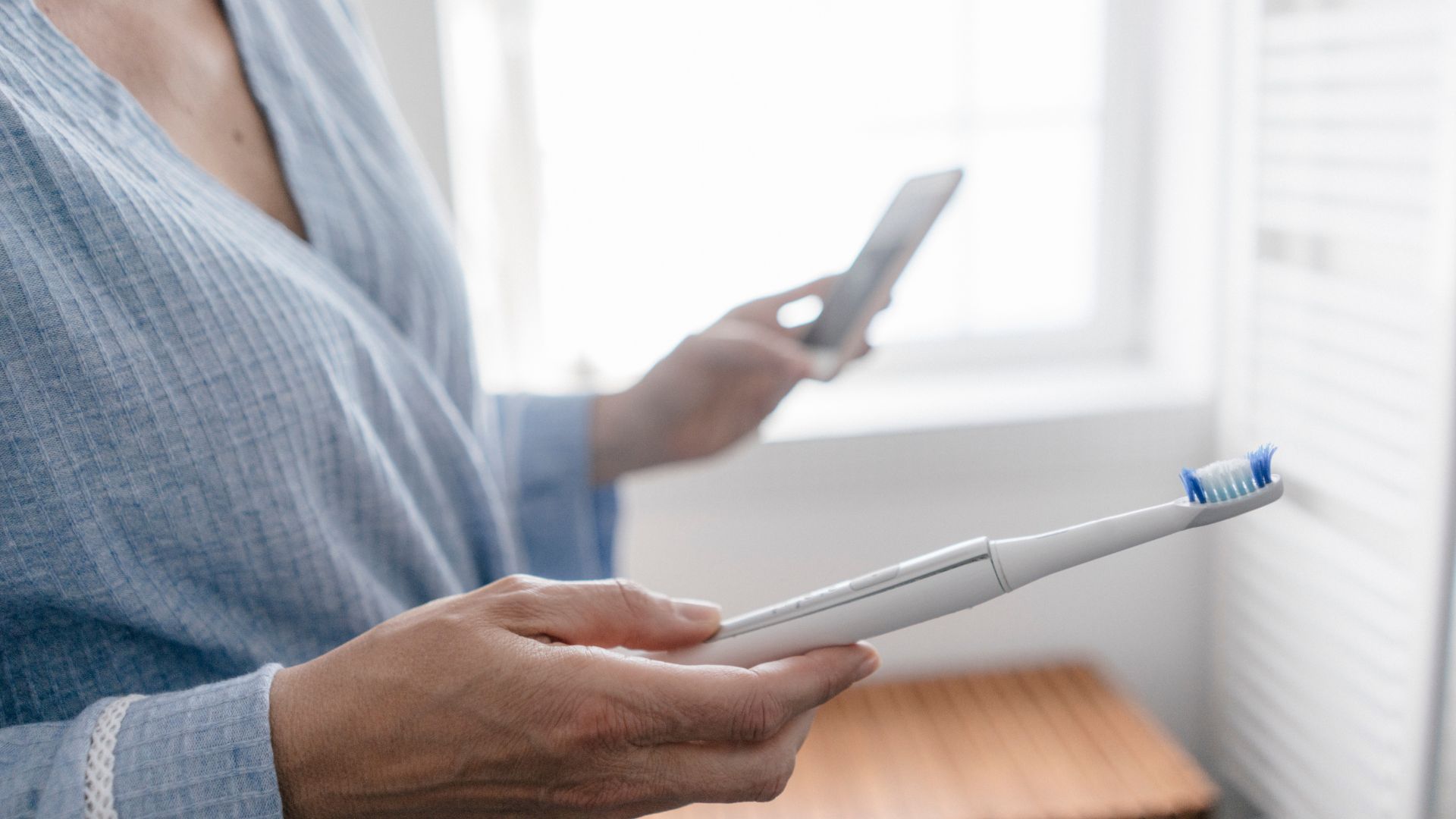
5. Thinking that brushing your teeth will make them whiter
Unfortunately for us, no amount of brushing alone will give us those sought-after pearly whites. So, if you’re looking to prevent yellow teeth, there’s a little more to it.
To achieve white teeth, there is a key ingredient needed. “Your treatment will need to include hydrogen peroxide. However, a lot of toothpaste brought over the counter will not contain hydrogen peroxide, or high enough levels [of it] to make a noticeable difference,” explains Dr Jethwa.
If you are looking to learn how to get white teeth then there are other, more effective ways to get there. Dr Jethwa recommends consulting with a qualified dentist about hygienist appointments, home whitening options, or in-chair whitening. Should you be on a tighter budget, we’ve put together some of the best whitening toothpaste approved by dentists and tested by us.
6. Brushing your teeth with coconut oil
You may or may not be familiar with the trend of oil pulling. An oral at-home treatment practised that's said to help with bacteria buildup and teeth whitening. However, Dr Juneja says it should not replace regular toothbrushing and flossing.
“It can be used as a supplementary practice, but it's essential to continue with a thorough oral hygiene routine for optimal results,” he continues. “It may also cause enamel erosion, so therefore has to be monitored by a dentist.”
7. Brushing straight after eating
Although some foods, like sugary snacks or garlic-heavy meals, can have us itching to brush our teeth after the last mouthful, the experts say you might want to wait before brushing. Dentist at Bupa Dental Care, Dr Neil Sikka, says that 30 minutes post-meal is the best time to brush your teeth.
Brushing your teeth as soon as you’re finished eating can seriously weaken your teeth’s enamel. “When you wait 30 minutes after eating to brush, this allows saliva to balance pH, remineralise your teeth, and prevent cavities and gum disease,” continues Dr Sikka. “If you brush immediately after eating, this can weaken the enamel, especially if you have consumed something acidic.”
If you’re suffering from receding gums or sensitive teeth, it may be from hasty post-meal brushing or perhaps from doing the one thing you should never do when brushing your teeth.
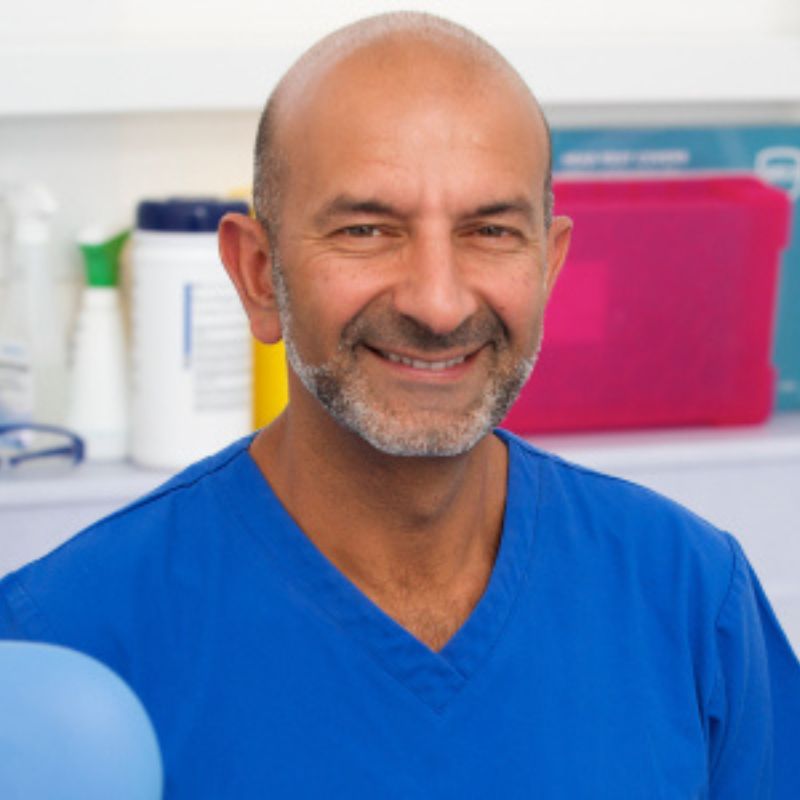
Chief Dental Officer at Bupa Dental Care and Founder of YoH, a company that aims to improve oral healthcare via their vegan toothpaste tablet. Dr Sikka also founded Barbican Dental Care in 1992, which now compromises of 10 practices.
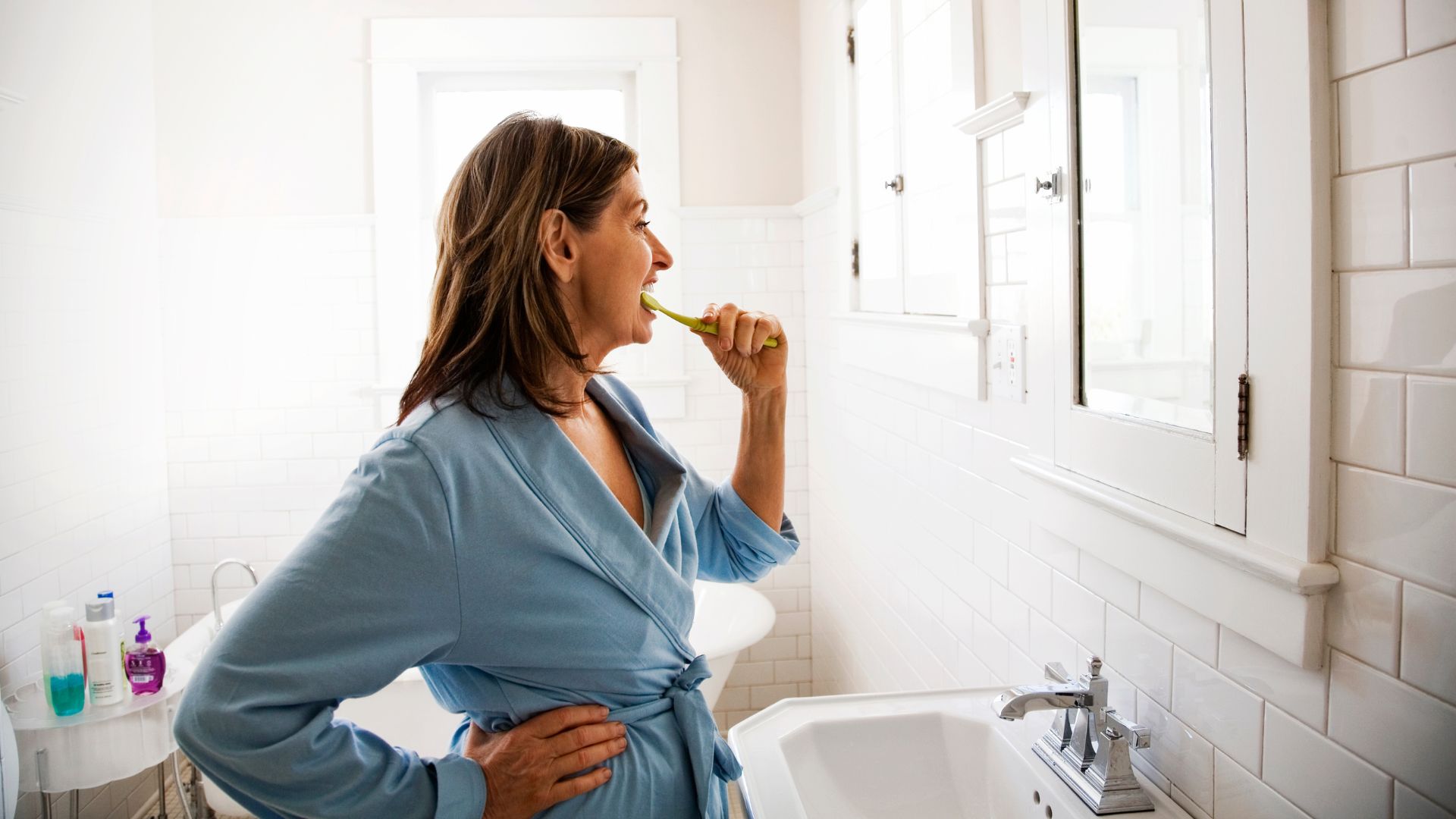
8. Forgetting to replace your toothbrush
You may already know how to change out your toothbrushes or electric toothbrush heads but are you doing it enough? It's extremely important to know how often you should change your toothbrush, as failing to swap it regularly can lead to a nasty build-up of bacteria.
According to Dr Jethwa, who is the vice president of the British Academy of Cosmetic Dentistry, we should be changing our brushes every three to four months. This does vary on the individual though. "If your bristles are splaying, looking worn out or feeling less stiff, then you should change it," he explains.
If your toothbrush is showing signs of wear then the bristles aren't in good enough order to clean your teeth and gums effectively. Dr Jethwa also recommends changing out your toothbrush if you've been unwell to avoid harbouring any germs on the brush.
9. Skipping flossing
The age-old dentist recommendation: Floss. As much as we loathe to hear it, flossing is extremely important for our overall oral health and can make a huge difference when it comes to the strength of our teeth.
Dr Matthew Billington, a certified dentist at Dr Wyman Chan London Dentistry, says that flossing is a vital step that is often overlooked. "A whopping 40% of the tooth is missed if you don’t floss," he says. "The most common place for tooth decay is between the teeth."
Not sure how to floss your teeth properly? Make sure you get up around the sides of your teeth towards the gums, forming a 'C' as you wrap the floss around your teeth.

Dr Billington specialises in cosmetic dentistry, with a interest in teeth whitening and Invisalign. He has completed training in smile design, porcelain veneers and composite bonding.
10. Incorrect brushing technique
We all assume that we know how to brush our teeth properly - but according to the experts, most of us are doing it wrong. Dr Billington explains that we should be cautious of how we use our toothbrushes and that the technique needed differs depending on the type of brush you use.
"For manual toothbrushes, employing small circular motions is recommended instead of a back-and-forth sawing motion," explains Dr Billington. "For electric toothbrushes, it is advised to allow the brush to do its work without exerting additional pressure."

Emily joined woman&home as a staff writer after finishing her MA in Magazine Journalism from City University in 2023. After writing various health and news content, she now specialises in lifestyle, covering unique cleaning hacks, gardening how-tos, and everything to help your houseplants thrive.